Explore web search results related to this domain and discover relevant information.

The new Mueller indictment doesn’t get at the root of the problem: the unchecked market power of social-media companies.
This is digital marketing 101. Start with a product to sell and test a variety of messages until the best one rises to the surface. In the election-interference case, the “products” for Russian trolls were divisive political messages about issues like, say, religion.The recent Mueller indictment doesn’t get at the root of the problem: the unchecked power of social-media companies.Last Friday, the Justice Department charged 13 Russians with attempting to subvert the 2016 U.S. presidential elections. The case presented by Special Counsel Robert Mueller laid out an elaborate scheme of information operations, carried out primarily via the social media websites Facebook, Instagram, and Twitter.Consider two things. First: While the Russians created fake accounts to pose as Americans on social media and buy ads, the technologies they deployed are all commonplace in the digital-marketing industry—this was no 007-style spycraft. Second: These days, Americans live in divisive, partisan information environments, chock-full of incendiary rhetoric.
Digital voting, also iVoting, are systems which make use of digital technologies in elections, allowing people to vote in an election online.
Experience digital voting with POLYAS – the market leader for digital voting in Germany. Web voting with POLYAS enables your voters to participate in elections wherever they are in the world. As long as they have a browser and internet enabled device, they can cast their vote.Allowing your electorate the option to vote online increases your voter turnout. Moreover, digital voting with POLYAS gives you peace of mind – our software is certified under the highest security standards.Digital voting (also known as web voting) refers to systems which make use of digital technologies, specifically the internet, to allow people to vote in an election and to have their votes counted online.You are here: Home1 / POLYAS Election Glossary2 / Digital Voting
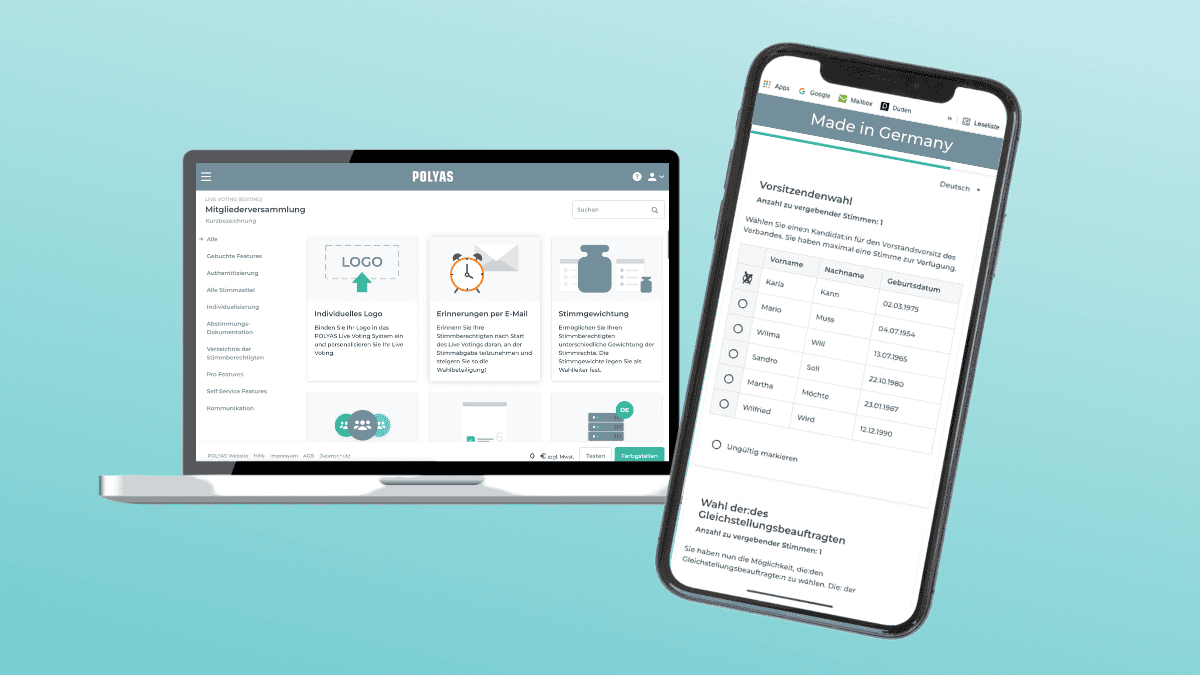
Attempts to introduce electronic ... e-voting is only a part of the equation. The use of digital technologies encompasses the entire electoral process, spanning from political advertising and voter registration, to vote counting and as such brings its share of challe...
While numerous advantages of this process, such as the inclusion of excluded voices, diaspora voting, as well as the organisation of elections in times of crisis are often cited as advantages, election digitalisation opens many questions and dilemmas such as the integrity of the electoral process.Attempts to introduce electronic voting have also been made in Germany, Norway, and Switzerland, but efforts are still far from being realised. · However, e-voting is only a part of the equation. The use of digital technologies encompasses the entire electoral process, spanning from political advertising and voter registration, to vote counting and as such brings its share of challenges.The 2017 presidential elections in Kenya, when voter registration information was used to send out text messages and invite Kenyans to vote for political candidates, or Brazil’s 2018 presidential elections when companies were hired for ‘data-driven campaigns’ on Whatsapp, are some of the many illustrations. Cybersecurity issues also feature big in the discussions on digital elections.Security issues also include the risk of foreign and domestic interference in elections to influence the outcome. The impact of digital technologies on the information environment encompasses questions pertaining to Internet access or lack of thereof. Increasingly, more attention is being paid to cases where government authorities resort to partial or complete Internet blackouts or blocking of social networking sites.


Powered and implemented by FactSet Digital Solutions. Legal Statement. This material may not be published, broadcast, rewritten, or redistributed. ©2025 FOX News Network, LLC. All rights reserved. FAQ - New Privacy Policy ... Panelists weigh in on a possible Republican National Convention before the 2026 midterm elections...
Powered and implemented by FactSet Digital Solutions. Legal Statement. This material may not be published, broadcast, rewritten, or redistributed. ©2025 FOX News Network, LLC. All rights reserved. FAQ - New Privacy Policy ... Panelists weigh in on a possible Republican National Convention before the 2026 midterm elections, VP JD Vance slamming California Gov.A 'Kudlow' panel featuring Mollie Hemingway and Miranda Devine weigh in on President Donald Trump's approval ratings, Volodymyr Zelenskyy's attire for his meeting with Trump, election integrity and their outlooks for the 2026 midterm elections.Congressman Warren Davidson, R-Ohio, tells ‘Mornings with Maria’ that President Donald Trump’s leadership could end the Ukraine war, slams Biden’s failed energy strategy and sounds alarm on Democrats’ bid to tilt future elections.Check out our Fox News 2024 election results here.

Election officials are letting voters in a little-followed race cast ballots with their mobile phones, even as critics raise concerns over the vulnerability of digital ballots.
Their selections are then recorded in a PDF file, which election officials say will be printed to create a paper trail. In addition to making mobile ballots available to all voters, Seattle-based Democracy Live, which is providing the voting technology, is instituting a digital signature feature for mobile devices in which voters use their fingers to sign, similar to ones used by mobile payment systems such as Square.But mobile voting is prone to cybersecurity breaches just as other forms of election technology are, said Andrew Appel, a computer science professor at Princeton University who studies digital election security. Determined hackers can access voters‘ phones, Appel said, citing the recent infiltration of the phone of Amazon founder Jeff Bezos, who also owns The Washington Post.At the time, DHS officials said people connected to the Russian government had tried to hack voter registration files or public election sites. New digital voting efforts exacerbate the concerns of those already nervous about the susceptibility of election systems.That scant turnout led the board, which manages its own elections under Washington state law, to reach out to Wise to brainstorm ways to improve the process. King County had used digital voting technology for overseas military and disabled voters, and Wise suggested considering that technology for the King Conservation District board election.

Election programming is stored on the system as an encrypted and digitally signed data bundle.
Every action and event — including access attempts, access of system functions and errors — is logged and time-stamped. The audit log is digitally signed each time an event is recorded.Featuring a brighter, more responsive touch screen, it delivers an intuitive user experience with smooth, precise interactions. It also features a redesigned high-speed paper path and faster startup. This system builds on a decade of proven Election Day success.Together with the ExpressPoll® electronic pollbook and ExpressVote® Printer, you can quickly check in voters and serve up to 15,000 different ballot styles.Simplifies post-election management because there are no unclear marks to adjudicate.
As political engagement falls, technology keeps moving. Do recent digital voting innovations make it secure enough to bring the ballot box to voters?
Do recent digital voting innovations make it secure enough to bring the ballot box to voters? ... With rising prices leading to political instability and voter turnout down around the globe, policymakers should also be asking how the can re-engage citizens in democracy. You’ve probably not seen that question answered quite so cluelessly as my local council in the run-up to its 2019 election, by sticking giant poo emojis all over town.Voter turnout fell six percentage points on the previous election. Among the Facebook fury that called the poo emoji campaign tasteless and patronizing, a lone voice suggested another way to achieve the campaign’s aim. “I filled in my voting papers a couple of weeks ago, but it’s sitting in its envelope still, ready to be posted. When I get the chance to swing by a post box, I will, but it’s not something I do these days. Bring voting into the click-of-a-button digital world, and you will have voters.”Josiah Mortimer of the UK Electoral Reform Society dismisses digital voting entirely. “There are more pressing problems with the voting system than going to a polling station or getting a postal vote. Major privacy, accuracy and trust concerns have not been dealt with, and we feel the issue is a distraction from the real democratic crisis.Whatever drives New Zealand’s election turn-out, there’s more to it than proportional representation. For its “privacy, accuracy and trust” concerns around digital voting, Electoral Reform Society pointed me to a 2015 article, Why we can’t vote online.

Get the latest politics news in Connecticut, including updates about the General Assembly, the governor's office and the elections.

A new interactive digital tool, “Electoral Compass,” was launched today in Chisinau to help citizens make an informed decision in the parliamentary elections on September 28. The platform allows users…
Gender-Centru launches monitoring of the election campaign · Igor Botan: We are in a war of attrition. There is no optimistic outlook for its end · Mihai Turcanu: Nazi Germany’s policy bears a striking resemblance to Russia’s policy today · Today’s lessons from the 1938 Munich Agreement. IPN debate · Russian army attacks energy infrastructure in Ukraine. Thousands of consumers left without power ... A new interactive digital tool, “Electoral Compass,” was launched today in Chisinau to help citizens make an informed decision in the parliamentary elections on September 28.DigitalElectionsElectoral CompassFESParliamentary elections 2025The “Electoral Compass,” a digital guide for voters, has been launchedThe “Electoral Compass” platform, available in Romanian and Russian, is based on a questionnaire with 35 statements from various fields: economy, justice, social policies, governance, and the environment.
Politics at CNN has news, opinion and analysis of American and global politics Find news and video about elections, the White House, the U.N and much more.
Anatomy of three Trump elections: How Americans shifted in 2024 vs.Boston Mayor Michelle Wu, target of the Trump administration, will face Josh Kraft in fall electionDemocrat James Walkinshaw will win US House seat in Virginia special election, narrowing GOP majority, CNN projectsWhat Speaker Johnson’s historically small majority looks like after Virginia’s special election
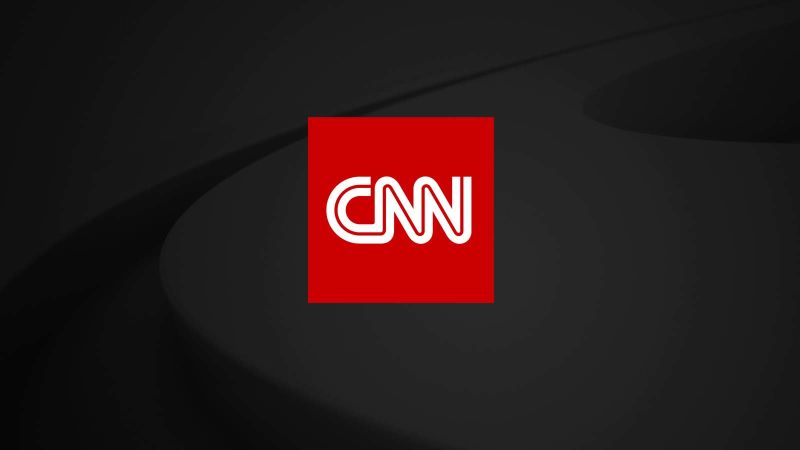
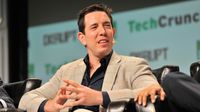
His nonprofit, Tusk Philanthropies, ... cast via digital networks rather than through the paper ballots or ATM-type machines that most Americans currently use. ... NPR is the first to report on the announcement. "My goal is to make it possible for every single person in this country to vote in every single election on their phone," ...
His nonprofit, Tusk Philanthropies, announced a $10 million grant program Thursday to fund the development of a new internet-based voting system that he says will aim to win over security skeptics, who have long been wary of votes being cast via digital networks rather than through the paper ballots or ATM-type machines that most Americans currently use. ... NPR is the first to report on the announcement. "My goal is to make it possible for every single person in this country to vote in every single election on their phone," Tusk said in an interview with NPR."There is a firm consensus in the cybersecurity community that mobile voting on a smartphone is a really stupid idea," Duncan Buell, a computer science professor at the University of South Carolina who specializes in election technology, said in an interview with NPR last year. Greg Miller, of the OSET Institute, says he has traditionally agreed with that line of thinking. But he has been heartened by what he sees as a seriousness from Tusk to engage with the security community, including by adhering to upcoming recommendations from a working group focused on digital voting at the University of California, Berkeley and by working with the cybersecurity company Synack to vet grant applications.Bradley Tusk, a venture capitalist and former political operative, announced a new $10 million grant for internet voting development on Thursday.OSET will design the public-facing ballot-marking application, and Assembly will design the technology that will actually transmit the electronic ballot from a person's phone or device to an election official.
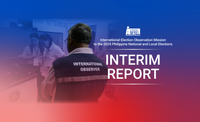
COMELEC’s steps in this regard were generally well received, although challenges remain in infrastructure and Election Day preparedness. · COMELEC introduced new digital campaign regulations in response to these evolving dynamics and collaborated with civil society and tech platforms to ...
COMELEC’s steps in this regard were generally well received, although challenges remain in infrastructure and Election Day preparedness. · COMELEC introduced new digital campaign regulations in response to these evolving dynamics and collaborated with civil society and tech platforms to encourage responsible online campaigning.The shrinking capacity of traditional media has left accountability gaps that civil society actors have sought to fill, though this shift has also created more space for unchecked disinformation. These developments underscore the urgent need to reinforce regulatory frameworks, enhance media literacy, and invest in long-term digital resilience to safeguard electoral integrity in the Philippines.The Asian Network for Free Elections (ANFREL) releases on 16 May 2025 the interim report of their international election observation mission to the 2025 Philippine National and Local Elections.The Asian Network for Free Elections (ANFREL) congratulates the Filipino voters, the Commission on Elections (COMELEC), and all stakeholders for their unwavering determination and mass participation to uphold democracy through the conduct of the 2025 National and Local elections despite operational challenges and a climate of political uncertainty.
While countries like India continue to use electronic voting, several countries have cancelled e-voting systems or decided against a large-scale rollout, notably the Netherlands, Ireland, Germany and the United Kingdom due to issues in reliability or transparency of EVMs. Moreover, people without internet or the skills to use it are excluded from the service. The so-called digital ...
While countries like India continue to use electronic voting, several countries have cancelled e-voting systems or decided against a large-scale rollout, notably the Netherlands, Ireland, Germany and the United Kingdom due to issues in reliability or transparency of EVMs. Moreover, people without internet or the skills to use it are excluded from the service. The so-called digital divide describes the gap between those who have access to the internet and those who do not.Paper-based voting systems originated as a system where votes are cast and counted by hand, using paper ballots. With the advent of electronic tabulation came systems where paper cards or sheets could be marked by hand, but counted electronically. These systems included punched card voting, marksense and later digital pen voting systems.It has been argued political parties that have more support from less-wealthy voters—who tend to have less access to and familiarity with the Internet—may suffer in the elections due to e-voting, which tends to increase participation among wealthier voters. It is unsure as to whether narrowing the digital divide would promote equal voting opportunities for people across various social, economic, and ethnic backgrounds.A paper on “remote electronic voting and turnout in the Estonian 2007 parliamentary elections” showed that rather than eliminating inequalities, e-voting might have enhanced the digital divide between higher and lower socioeconomic classes. People who lived greater distances from polling areas voted at higher levels with this service now available.Depending on the particular implementation, e-voting may use standalone electronic voting machines (also called EVM) or computers connected to the Internet (online voting). It may encompass a range of Internet services, from basic transmission of tabulated results to full-function online voting through common connectable household devices.


Chaum later founded DigiCash, an early digital currency, and proposed cryptographic voting systems that preserve anonymity while enabling public verification. His work laid key foundations for both secure e-voting and modern cryptocurrencies like Bitcoin. “What you want is the machine at the end—the central count tabulator or election ...
Chaum later founded DigiCash, an early digital currency, and proposed cryptographic voting systems that preserve anonymity while enabling public verification. His work laid key foundations for both secure e-voting and modern cryptocurrencies like Bitcoin. “What you want is the machine at the end—the central count tabulator or election management system—gets a vote definition, and you have a Chaumian-blinded serialization on every ballot,” Pospieszalski said.A former voting tech auditor claims that voting machines still lack key security fixes flagged in 2006, leaving U.S. elections vulnerable.The solution, according to Pospieszalski, involves software—not hardware—and builds on cryptographic techniques first developed in the 1980s by David Chaum, a cryptographer who pioneered digital cash and introduced blind signatures, allowing transactions to be verified without revealing their contents.In Pospieszalski's proposed model, there would be three counts: the paper ballots, the conventional digital tally, and a third cryptographic count.

The Electoral Commission oversees elections and regulates political finance in the UK to ensure the integrity of the democratic process. Mr Rangarajan was not CEO when the hack happened but says that colleagues described the chaos of discovering the hackers as "feeling like you'd been burgled whilst still inside the house". The hackers first breach was in August 2021, using a security flaw in a popular software programme called Microsoft Exchange. The digital ...
The Electoral Commission oversees elections and regulates political finance in the UK to ensure the integrity of the democratic process. Mr Rangarajan was not CEO when the hack happened but says that colleagues described the chaos of discovering the hackers as "feeling like you'd been burgled whilst still inside the house". The hackers first breach was in August 2021, using a security flaw in a popular software programme called Microsoft Exchange. The digital hole was being exploited by suspected Chinese spies around the world and organisations were being warned to download a software patch to protect themselves.In the first interview about the hack, the commission's new boss admits that huge mistakes were made, but says the organisation is now secure.Mr Rangarajan said staff at the time didn't seem to think the commission would be targeted by hackers. This was despite high profile elections interference cases like the 2016 US presidential election hack of Hilary Clinton's emails.The UK's elections watchdog says it's taken three years and at least a quarter of a million pounds to fully recover from a hack that saw the private details of 40m voters accessed by Chinese cyber spies.
This makes them cheap enough to perform audits on every election. As of 2018, three states have implemented RLA mandates, with Colorado leading the way. The other forty-seven should do the same as soon as possible. Proposals surface every now and then to allow voting from home or abroad via smartphones or laptops. Security experts are near-unanimous that this is unacceptably risky, and EFF supports this conclusion. Protect digital ...
This makes them cheap enough to perform audits on every election. As of 2018, three states have implemented RLA mandates, with Colorado leading the way. The other forty-seven should do the same as soon as possible. Proposals surface every now and then to allow voting from home or abroad via smartphones or laptops. Security experts are near-unanimous that this is unacceptably risky, and EFF supports this conclusion. Protect digital privacy and free expression.Protect digital privacy and free expression. EFF's public interest legal work, activism, and software development preserve fundamental rights. DONATE TO EFF ... SAN FRANCISCO – The Trump Administration must cease its politically motivated investigation of former U.S. Cybersecurity and Infrastructure Security Agency Director Christopher Krebs, the Electronic Frontier Foundation (EFF) and dozens hundreds (see update below) of prominent cybersecurity and election security experts urged in an open letter.California’s 2024 legislative session has officially adjourned, and it’s time to reflect on the wins and losses that have shaped Californians’ digital rights landscape this year.EFF monitored nearly 100 bills in the state this session alone, addressing a broad range of issues related to privacy, free speech, and innovation. These... Read more about Triumphs, Trials, and Tangles From California's 2024 Legislative Session · Deeplinks Blog by Guest Author, Cindy Cohn | October 9, 2024 ... Everyone wants an election that is secure and reliable and that will ensure that the voters’ actual choices are reflected in the results.Voting is the cornerstone of our democracy. The mechanics of how we vote, and how those votes are counted, are critical to ensuring our votes are meaningful. EFF supports paper records for every vote, and automatic, risk limiting audits for every election. We'll oppose legislation that doesn't include those two critical measures.

A major feature of the 2000 recount ... cards correctly. Antiquated voting technologies were rapidly replaced after 2000 with increasing use of purely electronic machines, which prompted controversies over whether they could be trusted to record votes accurately....
A major feature of the 2000 recount controversy in Florida was the performance of punch-card voting machines, which were beset with problems associated with poor ballot design and “chads” that failed to separate from the punch cards correctly. Antiquated voting technologies were rapidly replaced after 2000 with increasing use of purely electronic machines, which prompted controversies over whether they could be trusted to record votes accurately.That controversy has reversed the trend and led to a decline in the use of purely electronic voting machines in recent years, along with agitation for more sophisticated methods to audit the performance of voting machines.Starting in the early 2000s, voting machines were replaced in a wholesale fashion, spurred on by the availability of federal funds to buy new equipment under the passage of the Help America Vote Act. By the mid-2010s, this equipment had become obsolete, which led the Presidential Commission on Election Administration to note that there was an “impending crisis” in voting technology.Historically, five types of voting machines have been used at least somewhere in the United States: hand-counted paper, mechanical lever machines, punch-card machines, scanned paper ballots, and direct-recording electronic devices (Figure 1).
JavaScript is disabled in your browser · Please enable JavaScript to proceed · A required part of this site couldn’t load. This may be due to a browser extension, network issues, or browser settings. Please check your connection, disable any ad blockers, or try using a different browser
A small number of trials are taking place in several states. One system called Voatz lets you vote on your mobile phone through an app. Another called Democracy Live does it by web browser. But how secure are these systems and will they eventually lead to everyone voting digitally?
For some Americans this presidential election will be the first time they have had the chance to vote via their computer or mobile phone. A small number of trials are taking place in several states. One system called Voatz lets you vote on your mobile phone through an app. Another called Democracy Live does it by web browser. But how secure are these systems and will they eventually lead to everyone voting digitally?Ten teenagers swap their smartphones for brick phones as part of a week-long digital detox.
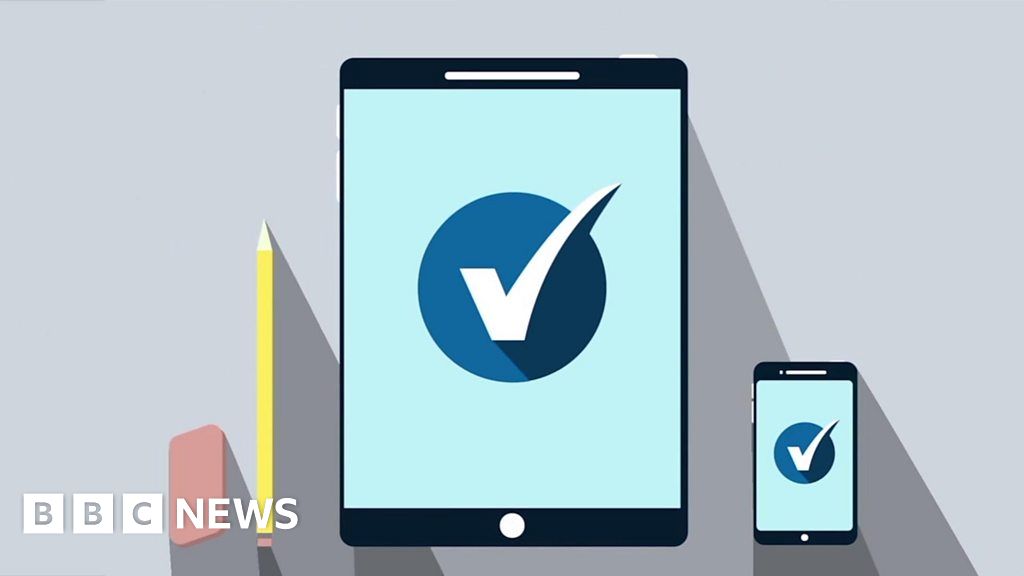
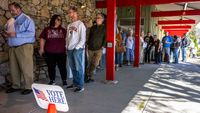
As some key battleground states celebrated record early voter turnout last week, a rash of misinformation began to spread through new digital tools launched by election conspiracy theorists.
Election watchdogs fear this digital infrastructure could enable groups to collect, spread and potentially weaponize false information faster and more strategically than they did in 2020.In one case, a self-described relief worker in hurricane-battered North Carolina posted a dire warning on VoteAlert.org: Federal Emergency Management Agency employees responding to the storm damage were actually there as part of a “ballot stuffing” scheme intended to swing the election.But on one of the platforms where complaints are publicly viewable, many of the allegations are rife with misunderstandings of election processes or lack proof for their claims, according to officials who reviewed them at CNN’s request.One has sued close to a dozen states to make it harder to certify elections, and counts among its attorneys one of the lawyers who defended Donald Trump in his second impeachment trial for trying to overturn the 2020 election.






